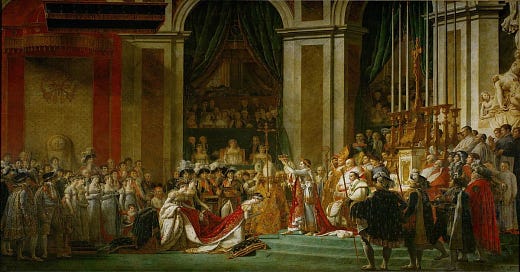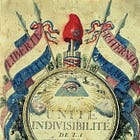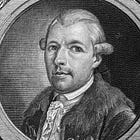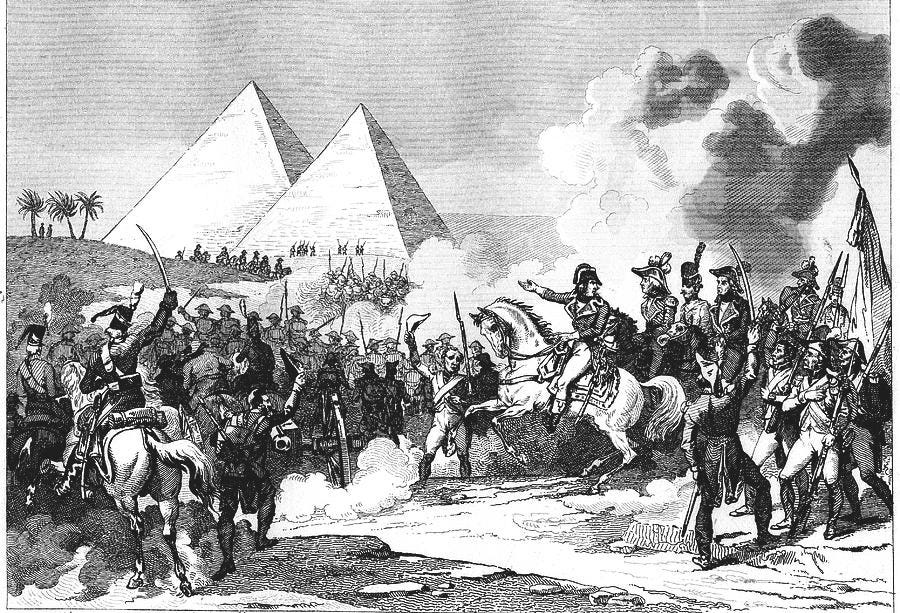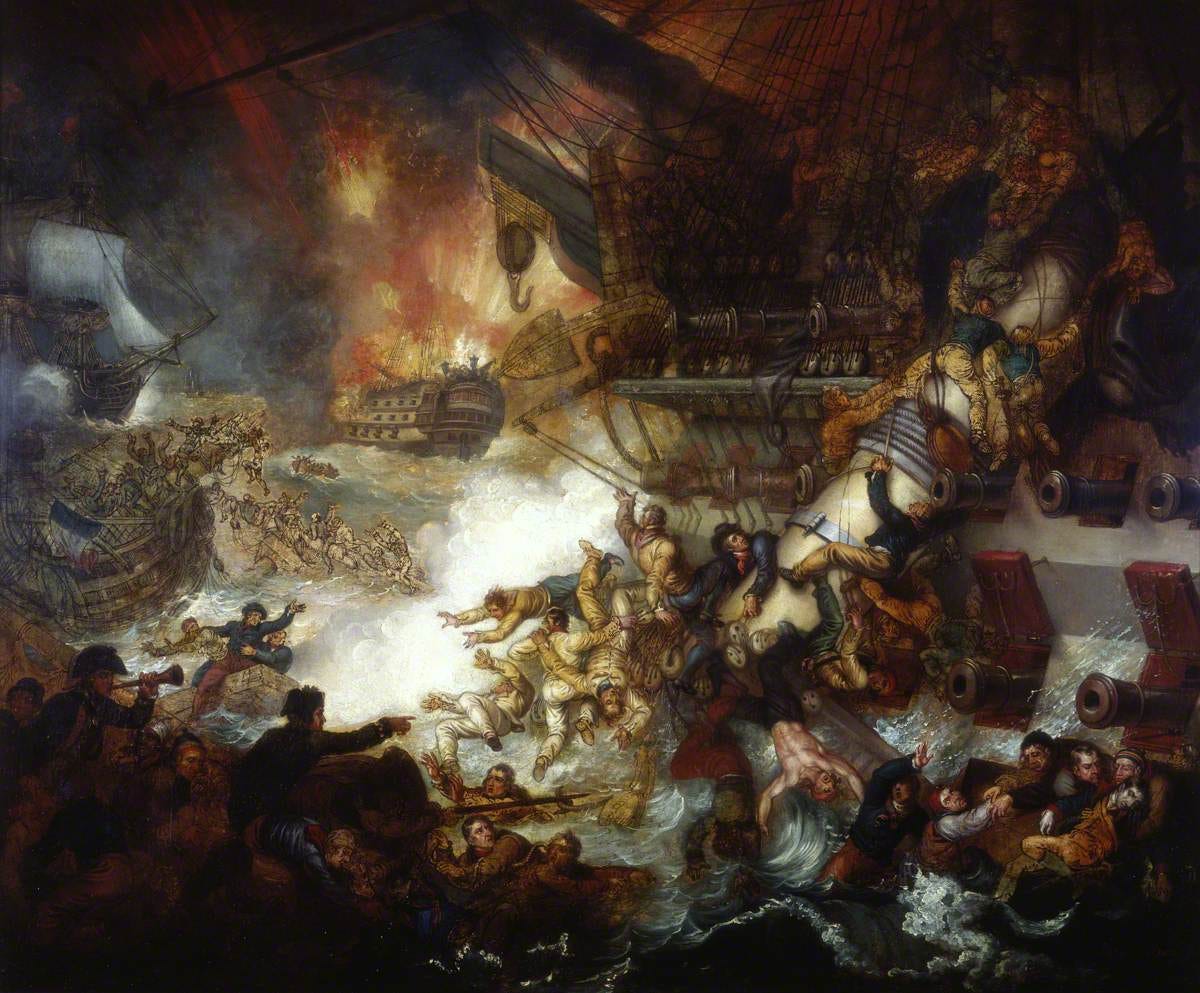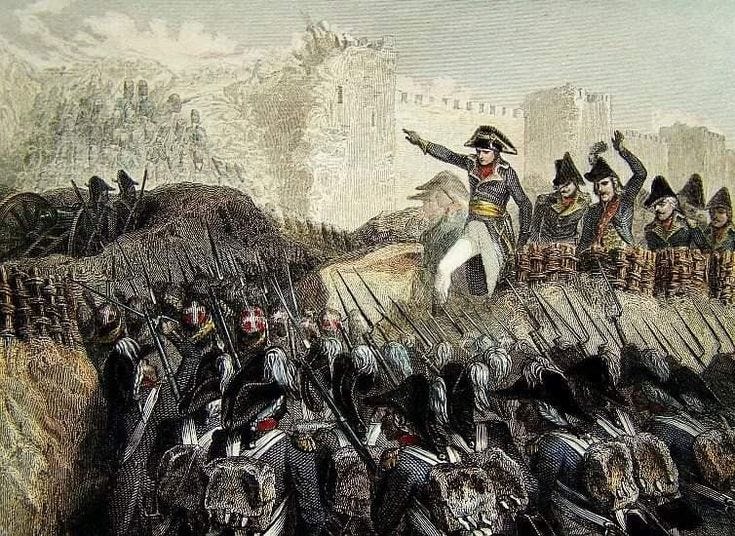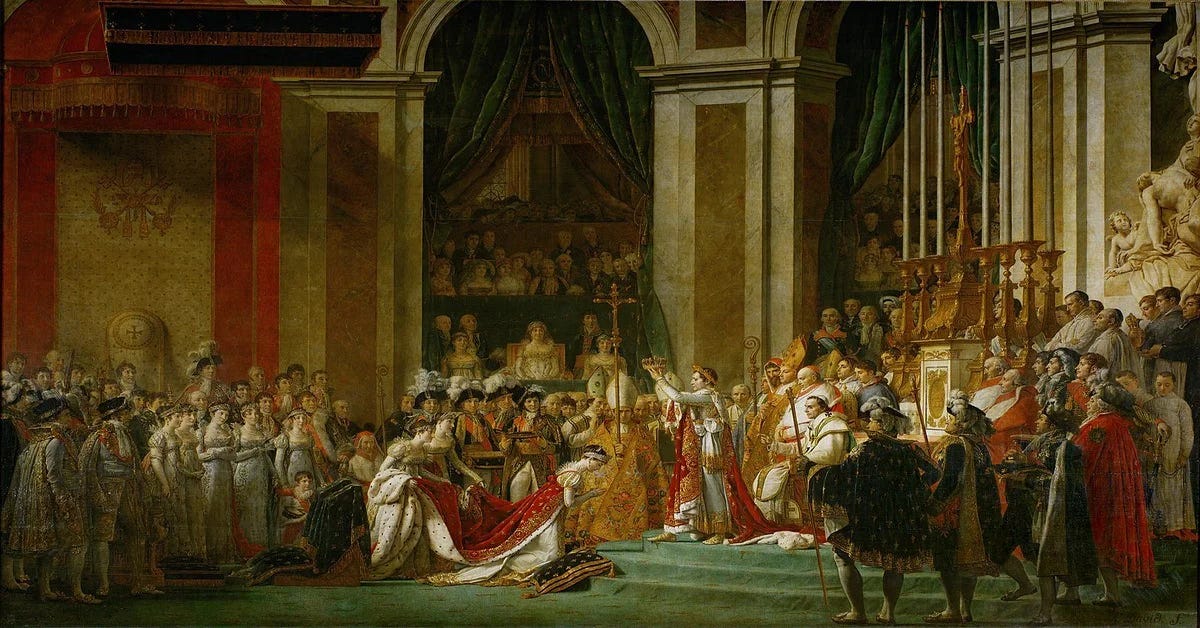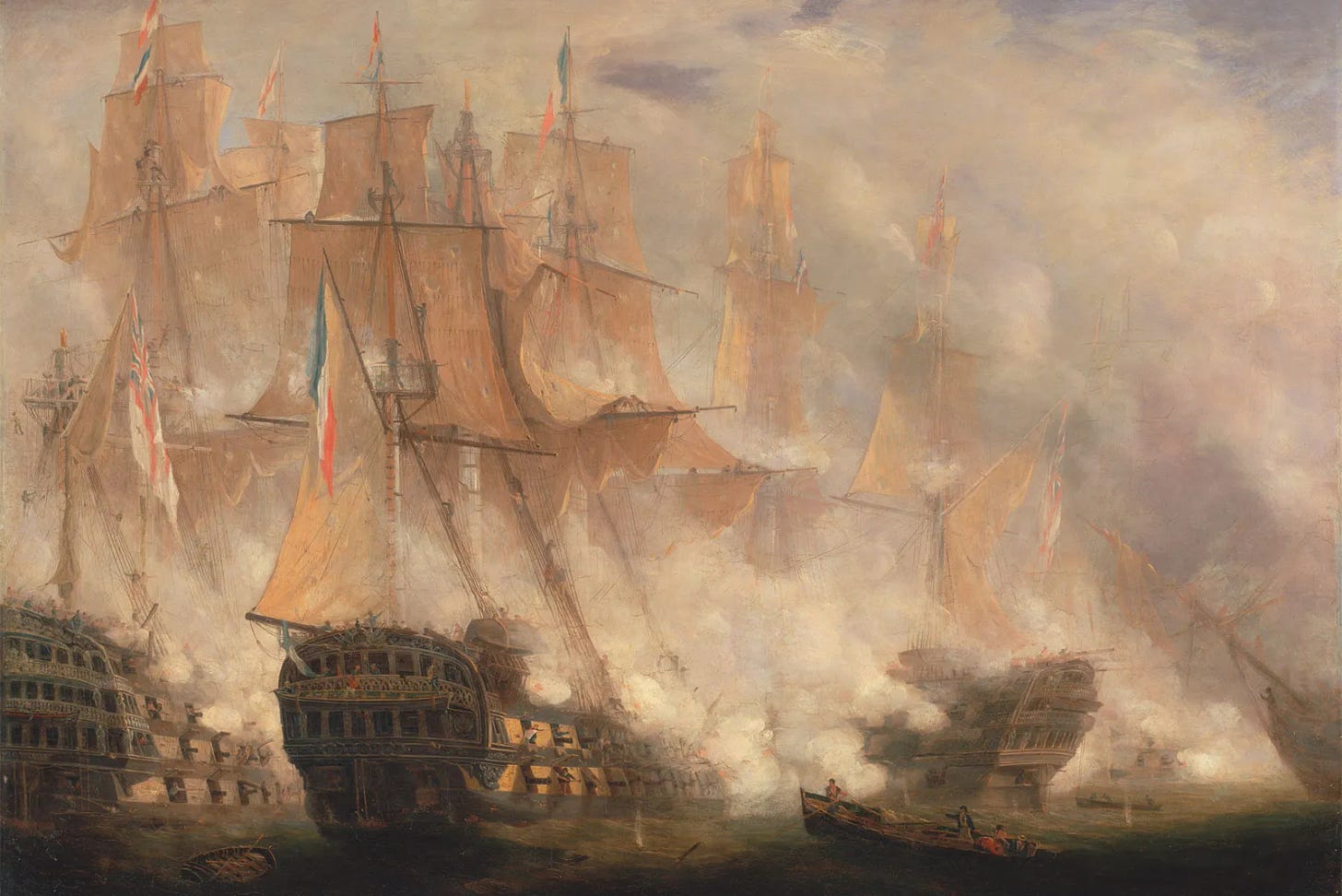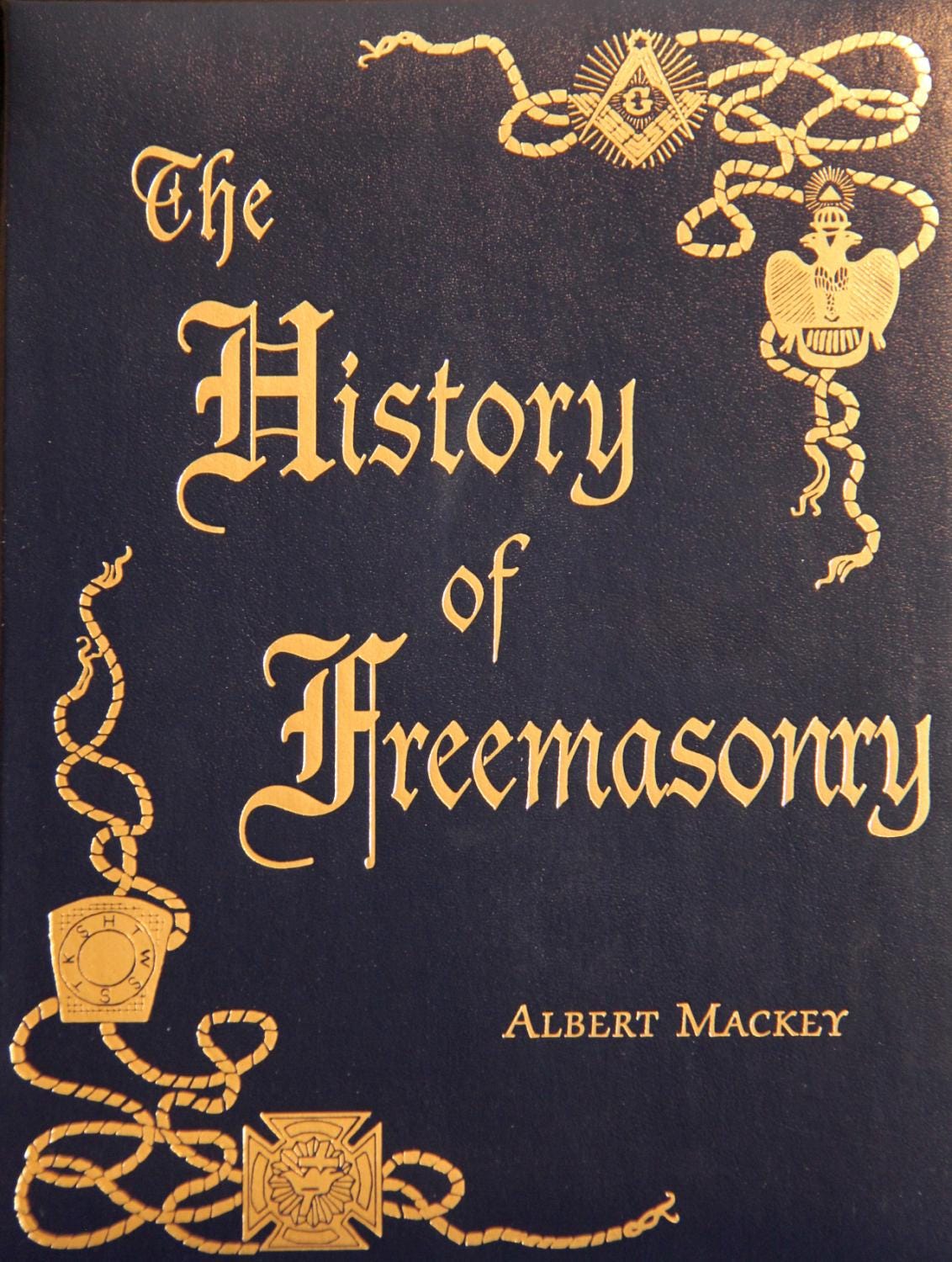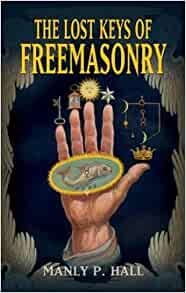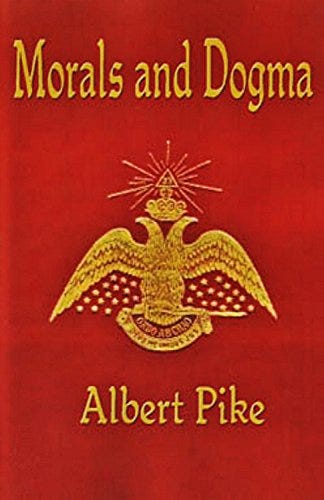“Terrorism, War & Bankruptcy are caused by the privatization of money, issued as debt and compounded by interest.”
— Emperor Napoleon Bonaparte
Previous Entries
In the penultimate chapter of this book, we will continue where we left off last chapter with the beginning of Napoleon Bonaparte’s campaign through Egypt and into the lands where modern day Israel now resides. His journey through the Holy Land shows us clearly the megalomaniacal instincts that drove this worldwide conqueror. Where he saw destiny, many Christians saw a confirmation of end times scripture. However, without the aid and financial backing of fellow Masons, his nascent Empire would have died in the cradle.
Thus far I have set forth the clear connections between these occult societies and the revolution that brought this Masonic regime into power. We see an explosion of Masonic activity in all the countries of Europe in the aftermath of the French Revolution: Napoleon’s reign as Emperor is arguably the height of the public display of this ancient Mystery religion within Europe. Wherever the revolutionary armies of France tread, churches were shuttered while Masonic lodges were opened. Martyrs for Christ were being executed at rates not seen since the reign of the Roman Emperors. Napoleon’s conquests stirred fear into the hearts of Christian’s across the world, and his armies brought chaos and disorder into the societies they “liberated” by force of arms.
It was for these reasons that he was viewed as a Antichristic figure, inspiring intense hatred or devotion wherever he went. The Masonic ties of his family and government did not go unrecognized within the era, and many Christians of the day saw a fulfillment of the scriptures in this tyrannical ruler. In the Temple of Reason dedicated to Libertas, some denominations of Christians saw a fulfillment of the Abomination of Desolation mentioned in Daniel’s prophecy. The book The Identity of Napoleon and Antichrist completely demonstrated (1809) argued that Napoleon fit several descriptions of the Beast described in Revelation. Revelation tells us that a beast will rise out of the sea; Napoleon hailed from the island of Corsica. The unknown author saw the mark of the beast on hands and foreheads symbolized through the revolutionary saber and the French “liberty” caps. Through two different forms of gematria, the author added the letters in Napoleon’s name up to equal 666, the Number of the Beast. In Leo Tolstoy’s epic novel War and Peace, the main character, Pierre Bezukhov, finds a masonic tract that deciphers Napoleon’s name in much the same manner.
The veracity of these claims notwithstanding, it was not just these two authors who saw these signs as confirmation: many within the religiously astute societies of the era saw these same parallels within the man who defeat had scarcely touched.
“My policy is to govern men as the great number wish to be governed. That, I think, is the way to recognize the sovereignty of the people. It was by making myself a Catholic that I won the war in the Vendee, by making myself a Moslem that I established myself in Egypt, by making myself an ultramontane that I won men's souls in Italy. If I were governing a people of the Jewish race I would rebuild the Temple of Solomon."
— Emperor Napoleon Bonaparte
This cancerous growth, however, could not be contained, and the revolutionary fervor of Masonic “liberty” was about to spread beyond the shores of Europe. Napoleon had been schooled from age 6 through his 16th birthday in elite military schools and academies across France. He was a man bred for war from a young age, and he excelled at his craft. By this point Napoleon had battled his way through Italy, his conquests doing such lasting damage to the Catholic church that they would require a loan from the Rothschilds of France in 1832 for what amounts to $4.3 billion of today’s dollars.
On his journey to Egypt, Napoleon routed the defenders of the fortress island of Malta in one night of combat on June 11, 1798. (This feat was largely accomplished due to the help of French saboteurs within the Order of Malta.) Setting forth from the island later in June, the French fleet sailed to Alexandria, making port on July 1st. That same day, Napoleon would issue the following proclamation in a nakedly disingenuous attempt to incite rebellion within the local populations at odds with their Ottoman rulers:
…People of Egypt, they have told you that I come to destroy your religion, but do not believe it; in reply I come to restore your rights, punish the usurpers and that I respect God, his prophet and the Quran more than the Mamluks. Tell them that all men are equal before God; wisdom, talents, virtues are the only things to make one man different from another…
…Wasn't it us who destroyed the Knights of Malta? Wasn't it us who destroyed the Pope who used to say that he had a duty to make war on Muslims? Wasn't it us who have at all times been friends to the Great Lord and enemies to his enemies?…
Around this same time period in 1798, General Kléber, famed for his brutality during the Vendee uprisings, founded the Isis Lodge in Cairo: the first Masonic Lodge on Egyptian soil.
While General Napoleon was surely seeking to destabilize Britain’s ally, the Ottoman Empire, this trip was not purely about military conquests. He was the consummate self promoter, ever eager to capitalize on the surely Masoniclly inspired Egyptomania that was sweeping post-Revolution France. Napoleon had brought along a coterie of French intellectuals and scientists, including Freemasons Gaspard Monge – former Minister of the French Navy – and Vivant Denon. Denon had been a diplomat for the last king of France until he switched sides during the revolution: he was a virulent Bonapartist and devoted servant to Napoleon.
Denon personally looted priceless works of art and numerous artifacts throughout Bonaparte’s campaigns. Denon would be rewarded for his efforts during the Egyptian campaign with the honor of becoming the first director of The Louvre Museum: many of his ill-gotten bounties remain in The Louvre to this day. During this expedition, the Rosetta Stone would be discovered by French soldiers on July 11th. The momentous discovery, along with artifacts and artworks brought back to France, would ensure that this trip was a propaganda boon for Napoleon, whatever the outcome of his battles in Africa and the Holy Land.
— Napoleon in Egypt, ill. by Unknown, 1864
Napoleon’s initial foray into Egypt was executed flawlessly. Napoleon’s 13,000 strong army defeated a Mamluk force of 21,000 on Jul 21st in a battle fought at the base of The Pyramids of Giza. With their backs against The Pyramids, Napoleon arrayed his forces in a box formation. Bayonets bristled from the army like lethal steel quills, and the French artillery sat protected in the middle of this out-manned force. His army lost just 300 soldiers, as compared to the over 6,000 Mamluks killed by the French army’s superior tactics and overwhelming firepower advantage. The victory would be short lived.
Despite Napoleon’s many victories on land, he was continuously hampered by the French Navy’s ill luck at sea. Bonaparte’s reinforcement fleet was encircled and nearly wiped out by Admiral Horatio Nelson in the Battle of the Nile on August 1st. Only four out of the seventeen ships in the fleet managed to escape back to France – the rest were captured or destroyed in the vicious close quarters naval battle. Napoleon famously shrugged off the stinging defeat with a flippant quip, but the loss of much needed manpower and weaponry had sealed his campaign’s fate before it truly began.
— La Spartiate (far right) at the Battle of the Nile, 1 August 1798, ill by Mather Brown
Bonaparte spent the rest of 1798 establishing control over Egypt. Winter brought the natural ebbing of armed conflict, whilst visions of destiny consumed the general in Cairo. He saw in himself a revived Alexander, a reincarnated Charlemagne, a messiah figure to reunite the Jewish peoples under French banners. The weight of his Biblical surroundings and their role in world history was not lost on him: he gladly invited such comparisons.
In January of 1799, Napoleon learned of a massing Ottoman army gathering in Syria, the French army marching out to meet it. The French forces laid siege to the fortress city of Jaffa from March 3rd to the 7th, finally breaking through the walls and laying waste to the city. For the next two nights, French soldiers raped and pillaged the ancient Biblical city, massacring its inhabitants. Thousands of Ottoman prisoners were summarily executed, allegedly due to the French army’s shorthanded forces.
On April 20th, the first day of Passover that year, Napoleon published his Letter to the Jewish Nation, intending to stoke the fires of rebellion amongst the Jews of the region. By Passover he had hoped to enter the Gates of Jerusalem: Napoleon’s attempt to fulfill the Messianic prophecy seen in Zechariah 9:9. While he had not set up camp within Jerusalem yet, it was published under the presumption that he would soon end the siege of the fortress city of Acre that had begun on March 20th:
Israelites, unique nation, whom, in thousands of years, lust of conquest and tyranny have been able to be deprived of their ancestral lands, but not of name and national existence! …
Hasten! Now is the moment, which may not return for thousands of years, to claim the restoration of civic rights among the population of the universe which had been shamefully withheld from you for thousands of years, your political existence as a nation among the nations, and the unlimited natural right to worship Jehovah in accordance with your faith, publicly and most probably forever.
We later see a variation of this declaration in the May 29th, 1799 edition of the Parisian newspaper Le Monituer, a Directory propaganda outlet:
At the head of an army of one hundred thousand men [ed. not quite], [Bonaparte] has proclaimed the delivery of Jerusalem and Judea, and calls back to their ancient homeland the Hebrews dispersed on the planet. Who knows? Perhaps they are going to see in him the Messiah, and soon twenty prophecies will have predicted the happening, the epoch, even unto the circumstance of his coming. It is at the least very probable that the Jewish People will reconstitute itself as the body of a nation, that the Temple of Solomon will be rebuilt.
The letter and article are important to note for several reasons. French propaganda was keen to cast Napoleon in these messianic tones, further demonstrating the clear desire that drove this man’s to attempt to force prophetic outcomes. Within the French declaration we see the true beginnings of Zionism and the first modern call to restore the state of Israel. While Zionism would not be formally established as a political movement for decades to come, Napoleon is the first world leader to seriously suggest the idea. We also see that the letter mirrors in many ways the proclamation to Ottoman subjects that Napoleon published in 1798.
Bonaparte’s true personal beliefs are difficult to ascertain: the man held many conflicting opinions on religious matters. Historians disagree on his sincerity in regards to restoring a Jewish state and whether these proclamations were purely agitprop deployed against his enemies. One can find positive and negative quotes about seemingly every religious group attributed to Napoleon. If one thing can be ascertained from this conflicting tapestry of compliments and jeers, it’s this: Napoleon would say whatever he needed to get what he wanted. Personally, I think it’s obvious that his statements perfectly fall in line with Masonic unitarian teachings, for he found aspects of the Lightbringer in all religions. However, his granting of full citizenship to Jews within conquered territories and France, as well later actions as Emperor, point toward a genuine intent on his part, regardless of his true motives.
— The Battle of Acre, ill. by Unknown, 1799
His megalomaniacal attempts to force prophecy were denied, and in May, Napoleon called off the siege of the ancient city of Acre. He was forced to retreat back to Egypt in the face of coalescing Ottoman forces, his dreams of a Jewish rebellion never materializing. British naval forces called off their blockade of the French coast in August of 1799, allowing Napoleon safe berth back to France by sea. In what will become a theme, Napoleon deserted his soldiers to a months long retreat, spinning the expedition as a historical bounty to critical acclaim back in France. General Kléber was left in command of the forces in Egypt, cursing Napoleon in one of his personal letters: “That bugger has deserted us with his breeches full of shit.”
"The greatest Monarchs in all Ages, as well of Asia and Africa as of Europe, have been Encouragers of the Royal Art; and many of them have presided as Grand Masters over the Masons in their respective Territories, not thinking it any lessening to their Imperial Dignities to Level themselves with their Brethren in MASONRY, and to act as they did."
— Masonic Charge to the Newly Initiated Candidate
For the next few years, the wars died down as both sides licked their wounds, refilled their coffers, and readied themselves for round two. Napoleon deftly used the Egyptian campaign to vault himself into political office. As Consul, a dictator in all but name, Napoleon negotiated the Concordat of 1801 with Pope Pius VII to restore some semblance of normal religious order in France. This reestablished the Catholic Church’s role as France’s primary religion, yet it also forced its new religious tolerance laws upon the Holy See. Napoleon controlled appointment of bishops, but agreed to pay salaries of clergy members in restitution for past thefts against the Church. That same year, he established the central Bank of France, a bank largely controlled by his Masonic family members and banker allies. With these moves, Napoleon began coalescing true dynastic power into his family’s hands.
In 1803, Napoleon’s minister Talleyrand negotiated the sale of the Louisiana Purchase with fellow Freemason, Thomas Jefferson. The land was sold to fund Bonaparte’s incipient wars against Britain, Germany and Russia. The dubious constitutionality of this purchase was hotly debated, but Congress had little say in the matter, truly. Jefferson unilaterally pursued the agreement without Congressional input, later strong arming Congress into approval of the deal. The purchase was facilitated by the Freemason owned Barings Bank, the largest bank in England at the time (followed by Nathan Rothschild’s outfit). The US assumed French war debts, while the rest of the $15 million asking price was paid off through future US government bonds. The purchase of this land by Jefferson was the lifeblood Napoleon needed to reconstruct the decimated French armies, beginning his conquests anew.
— The Coronation of Napoleon, 1804, ill. by Jacques-Louis David
On December 2nd, 1804, in a restored Notre Dame and with the Pope in attendance, Napoleon crowned himself Emperor of the new French Empire. This deliberately provocative move to crown himself signified his rejection of the Divine Right of Kings – the authority Christian societies of the age believed was given to rulers by God. Make no mistake, Napoleon wanted the world to know his power was won through his own hand. Napoleon’s rejection of God’s favor, in His Church, before the Vicar of Christ, could not have been more calculated.
Amongst the first actions Napoleon took as emperor was to establish client states surrounding France, ruled by his Masonic brethren. He made his brother Joseph King of Naples and Sicily in 1806 & King of Spain in 1808; Louis was made King of Holland in 1806; Jerome, King of Westphalia in 1807; and Lucien served as the Minister of the Interior. Joseph became the Grand Master of the Grand Orient de France in 1804, while Louis served as Deputy Grand Master from 1803 to 1806. Their brother Lucien also held high rank within the Grand Orient de France. Jerome had been Grand Master of the Grand Orient of Westphalia since he was 18, in 1801. Marshal of the Empire, Freemason Jean-Baptiste Jules Bernadotte, was chosen by Sweden’s Freemason King Charles XIII to succeed him. These countries – excluding Bernadotte’s later betrayal – served as valuable buffers, sources of manpower, and a fountain of lucre to fund Napoleon’s destructive wars of worldwide conquest.
Shortly after the influx of cash, Napoleon resumed his war with Britain. The general massed his forces during 1804 in preparation of an invasion of the British Isles. Conflicts broke out across the world on nearly every continent. On nearly every ocean, blood was being shed by these two “opposing” sides, both led by Freemasons, with armies funded by Masonic bankers. Each nation launched trade embargoes against the other, forcing neutral countries to pick a side in the revivified war, and further destabilizing international trade.
Starting before dawn on October 21st, 1805, Admiral Horatio Nelson led the outnumbered English fleet in a daring battle against French and Spanish fleets at Cape Trafalgar. The engagement lasted nearly twelve hours as ships traded close range cannon fire, splintering hulls and snuffing out lives. Sailors on both sides were locked in brutal hand to hand combat, their ship’s hulls entwined in a mirror of their inhabitants struggle to the death. Admiral Nelson fell to sharpshooter fire at the apex of the battle, but his crushing defeat of French naval forces guaranteed a long, drawn out war between Napoleon and Britain’s various coalitions over the next decade.
— The Battle of Trafalgar, 1805, ill. by John Christian Schetky
n Napoleon’s meteoric rise to power it is impossible to not see the parallels the man had with biblical figures of apocalyptic destruction. He invited such lofty comparisons upon himself, keenly aware of his role in life’s grand play. Everywhere Bonaparte’s armies went, the authority of the Church in society was uprooted and overturned. His soldiers were ruthless, highly trained, fanatically devoted, and commanded by a man who had studied nothing other than how to wage war.
While often discussed in glowing terms in American history books, it is impossible to not see the Louisiana Purchase as the lifeline that allowed Napoleon to begin his despoliation of Europe anew. The deal brokered between brother Masons not only inflamed tensions between America and England, but between her Canadian colony and the States as well. With a new understanding of the true forces behind these events, we begin to realize that the purchase of these lands inflamed the ongoing conflicts that were engulfing Europe once again. Without American money funding Napoleon’s war machine, the French Empire would have remained the fever dream of a Masonic madman.
Despite all the bloodshed and chaos you have already read about, the wars between 1805 and 1815 would bleed Europe in a way unseen until the great wars of the 20th century. From blood to gold, the cost of these wars are staggering. In many ways, the Napoleonic Wars are the true First World War.
No continent was safe, no ocean free from the bloodshed unleashed by the Masonic lies of Liberty and Equality.
“If I had to choose a religion, the sun as the universal giver of life would be my god.”
— Emperor Napoleon Bonaparte


